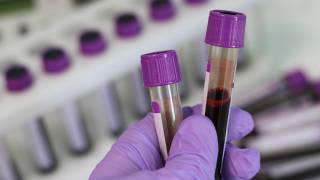Hepatitis C Therapies Work For Drug Users Too

Based on overwhelming evidence that new hepatitis C therapies are effective at curing the virus in people who inject drugs, researchers are calling for an end to discriminatory policies around the world.
This evidence came from a new Kirby Institute analysis published in The Lancet which reported the prevalence of active hepatitis C infection among people attending Australian needle and syringe programs declined from 43 percent to 25 percent, between 2015 to 2017.
“Across almost 40 studies worldwide, involving more than 3,500 people with recent or ongoing drug use, hepatitis C was cured in almost 9 out of 10 people,” said Dr. Behzad Hajarizadeh, from the Viral Hepatitis Clinical Research Program at the Kirby Institute, and lead author on the study.
New therapies for hepatitis C can cure the virus in more than 95 percent of people, however in many countries, the treatment is inaccessible to people who inject drugs, due to restrictions on treatment reimbursement related to an individual’s recent drug use, said these researchers in a press release.
A second treatment issue is many clinicians are hesitant to prescribe hepatitis C therapy to people who use or inject drugs, as there are concerns about adherence and the chance of reinfection.
This is a substantive issue since more than 33 percent of people who have injected drugs in the past year are living with hepatitis C. Chronic hepatitis C (HCV) infections are present in approximately 71 million individuals throughout the world.
Among this population, 8 percent of global infections are present in people who inject drugs.
“I hope our research will encourage countries to overturn these policies and allow treatment to all people living with hepatitis C, regardless of current or previous drug use,” Associate Professor Grebely is also President of the International Network of Hepatitis in Substance Users (INHSU).
“The World Health Organisation has set a target to eliminate hepatitis C by 2030,” said Associate Professor Grebely.
“Our data provide robust evidence to inform global clinical guidelines, and we hope it will improve public health policy for hepatitis C treatment for people who use drugs internationally.”
International members of parliament and other stakeholder organizations signed the ‘Global Declaration to Eliminate Hepatitis C in People Who Use Drugs’ led by INHSU, in which they called on world political leaders to adopt the World Health Organisation goal of hepatitis C elimination as a global public health threat by 2030.
The Declaration outlines 7 actions to close the “gap between the global impact of hepatitis C on the health and well-being of people who use drugs and the limited access to evidence-based services effective for the prevention, diagnosis, and treatment of hepatitis C infection”.
“This will bring us closer to the ambitious goal of global hepatitis C elimination,” said Associate Professor Grebely.
The funding for this study was provided by Gilead Sciences. These researchers did not disclose conflicts of interest. Media contact: Estelle Jones, Kirby Institute, +61 (0) 423 741 574, [email protected]
Our Trust Standards: Medical Advisory Committee

























